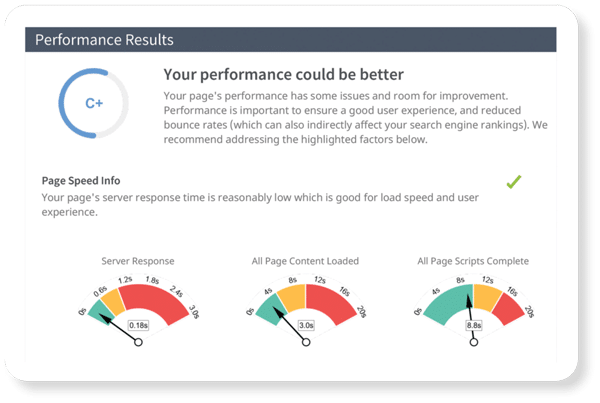SEO can be a powerful tool for increasing brand awareness and attracting new patients. But remember: with great power comes great responsibility. If you don’t utilize SEO effectively, it can actually end up hurting your website and medical practice. Below, I cover some of the more common medical SEO mistakes.
Disclaimer: This article is meant for readers with some basic SEO knowledge.
1. Not Using Long Tail Keywords
Always use long tail keywords, which are keyword phrases that are highly specific to what you’re offering. Although long tail keywords may have lower search volumes compared to their shorter counterparts, they will generally get you more conversions due to the lower competition and higher quality visitors. If you use keywords that are too broad, your page might not be what the searcher is looking for, whereas a more specific keyword phrase will more likely match the searcher’s aim.
- Example: Don’t use “teeth whitening”, use “professional laser teeth whitening in NYC”
2. Not Considering User Intent
Ok, so you’ve chosen a long keyword phrase – that doesn’t mean every long phrase is good. You need to choose keyword phrases that reflect your desired user intent. Nine times out of ten, you’re looking for patients that have already done their research and are ready to make an appointment.
- Example: Don’t try to rank for “how to cure sinus issues” or “what is balloon sinuplasty”, rank for “balloon sinuplasty treatment in NYC”
3. Not Checking Keyword Variations
If you’re just using the first keywords that come to mind, you could be missing out on some great, high-volume terms. Always use the Google Adwords Keyword Planner along with your own medical knowledge to find keyword variations– there might be some unexpected gems!
- Example: “Ophthalmologist” has almost double the search volume as “eye doctor” in New York, even though “eye doctor” seems to be the more common term
4. Using Duplicate Title Tags, Meta Descriptions, & Header Tags
This might seem like an obvious one, but we’ve seen a ton of websites that don’t use unique title tags, meta descriptions, and header tags. Check for duplicates using Google Search Console tools or a Screaming Frog crawl. This is one of the most important takeaways since duplicates affect everything from your rankings to the click-through rate. Unique tags teach Google what the page is about and tell users exactly what they’re clicking on.
- Example: Don’t make all of a dentistry site’s titles “Best Dentistry in NYC”; make sure the braces page includes “braces,” the veneers page includes “veneers,” etc.
5. Using Duplicate Terms in Title Tags
In your title tags, refrain from using the same word multiple times, since Google’s crawler is capable of combining words in different ways. Instead, add keyword variations, location keywords, and your brand name if there’s room.
- Example: Don’t use “ENT Doctors | ENT Specialists”, use “ENT Doctors & Specialists”
6. Forgetting Location Keywords
As a doctor or medical practice, your business most likely caters to specific areas. Therefore, you need to use location keywords to let Google know your service area. If this makes your title tag too long, drop the brand name unless your brand is extremely well known.
- Example: Don’t use “Cardiologist”, use “Cardiologist NYC”
7. Keyword Stuffing
Don’t even think about it. You might be tempted to “trick” Google by “stuffing” your pages with a ton of relevant keywords, but remember that it’s not all about rankings. When a potential patient clicks on your page, the page should be readable and informative, not a train wreck of over-optimization. On the same note, definitely use keyword-specific anchor text when creating internal links. An internal link is a great opportunity to tell Google what a page is about, and you can retain complete control over the anchor text. However, make it sound natural and don’t use too many.
8. Not Making Specific Pages
Make separate pages for each of your services. We can’t stress this enough – SEO can be a huge challenge when you only have broad, overarching pages that cover many different treatments. More pages mean more rankings for a wider range of search terms.
- Example: Don’t have a cosmetic dental services page that includes teeth whitening, porcelain veneers, and invisalign – have a teeth whitening page, a veneers page, and an invisalign page
9. Caring Too Much About Rankings
Rankings are great, and everyone wants to be ranked #1 in the search engine results. But let’s not forget what the end goal is: getting more patients. Make sure you set up Google Analytics goals to track conversions, which is what really matters.
- Example: Track phone number clicks and form submissions, which are better metrics than page views and rankings
10. Neglecting Website Content & Design
Search engine optimization is great, but you need to have great content and user experience to back it up. At the end of the day, it’s all about conversions; if your website underperforms, it doesn’t matter how many people click on your link. Make it easy for users to convert.
- Example: Have forms on each page, clearly marked conversion buttons, detailed doctors & services pages, easily accessible contact information, visible patient testimonials, etc.
Bonus: Don’t Hire an Agency That Makes These Mistakes
These are just some of the more common SEO mistakes made by doctors and medical practices, but there are hundreds more. If this feels overwhelming, don’t do it yourself; our SEO specialists at MyAdvice, will take care of it for you.



